News

2024 Inlight Research Fellowship Program
The Inlight Research Fellowship program will support graduate students to develop skills essential to conduct research projects that have a primary focus relevant to post-secondary student mental health and wellness at the University of Toronto.

Registration is open for the 2024 AGE-WELL Annual Conference
The 2024 AGE-WELL Annual Conference takes place on October 23 and 24 in Edmonton, Alberta. This year's theme is Shared Visions, Shared Futures: Transforming Aging Together, featuring the latest research along with inspiring discussions on current issues by global and Canadian thought leaders.
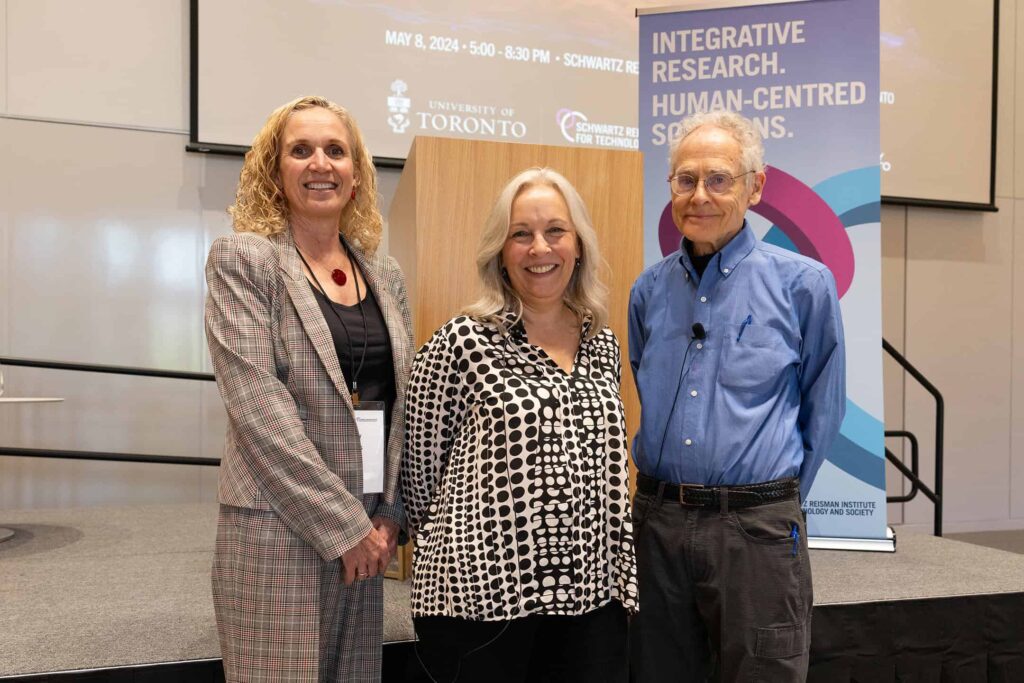
Agency of artificial intelligence and human input
The highly anticipated Schwartz Reisman Institute for Technology and Society’s annual Absolutely Interdisciplinary conference connected researchers and industry experts of varying specializations with the public to discuss key findings, problems, and the next steps in artificial intelligence (AI) research.

Animation on Cree community heart health hits the big screen
The animated short highlights key themes from Weeneebayko Area Health Authority community members’ stories about managing their heart health, including difficulties accessing specialized care close to home and being offered treatment plans that respect their cultural values.
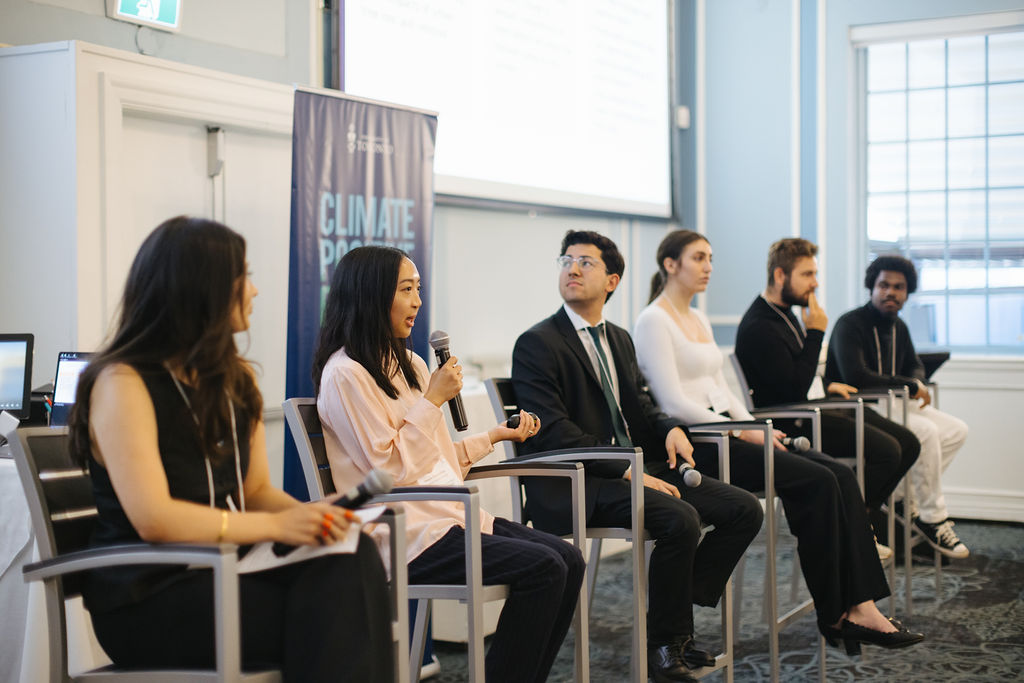
Climate Positive Energy research day addresses EV demand, skills
Research, partnerships, and the need for continued climate action was in focus during the third annual Research Day from Climate Positive Energy. Over 100 guests attended the sold-out event, including students, researchers, startups, and industry.
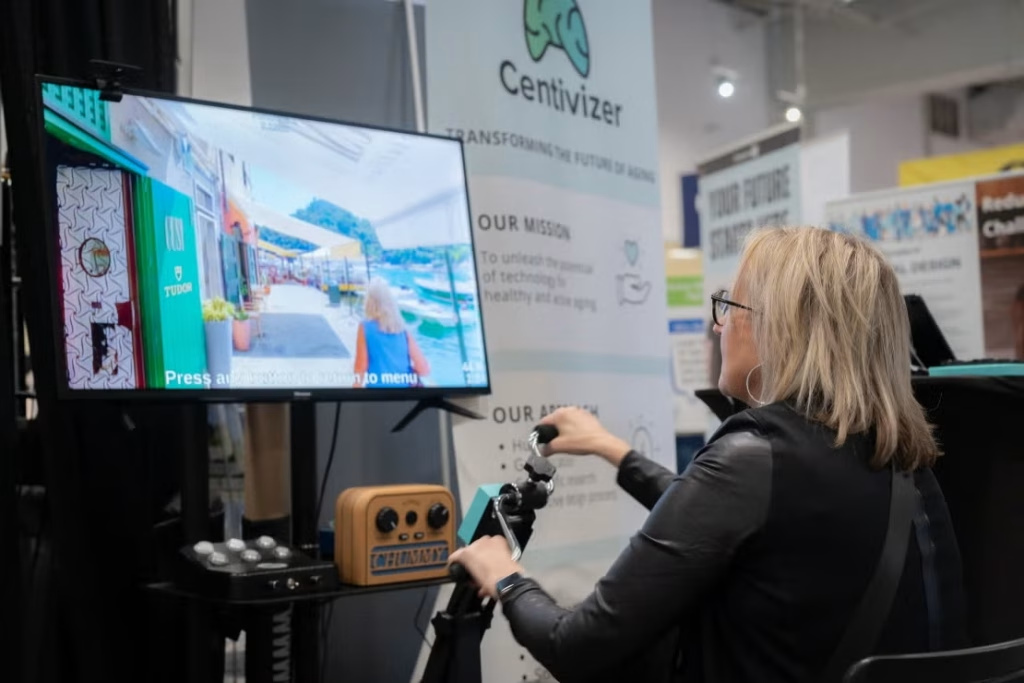
Healthy aging in place: New pilot program to provide high-tech cognitive, physical enrichment for seniors
Older adults living in a Toronto co-operative apartment building will soon have access to high-tech activity spaces designed to promote cognitive, physical and social enrichment. The pilot project is led by Mark Chignell, professor in the dept. of mechanical and industrial engineering, in collaboration with AGE-WELL and HelpAge Canada, a non-profit that supports community-based services for seniors.
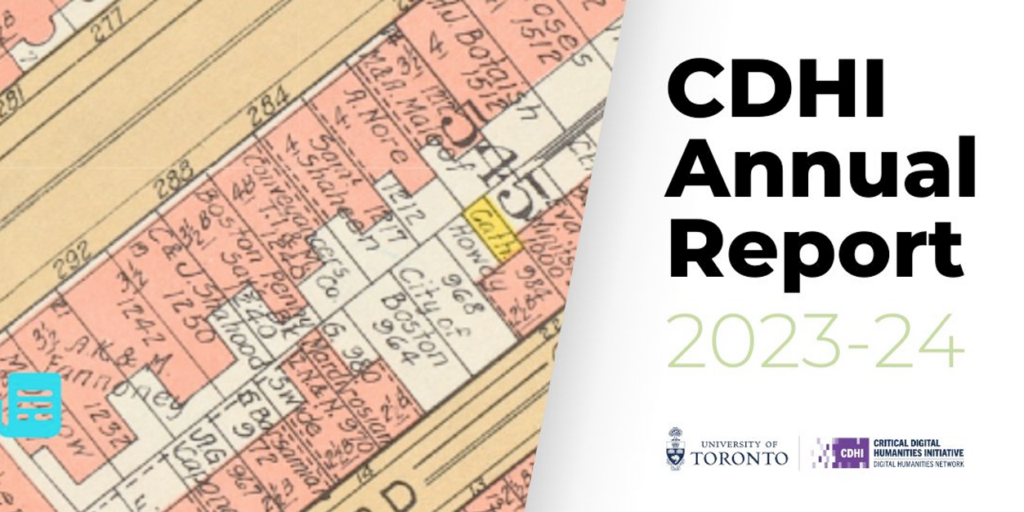
CDHI Year 3 Annual Report
CDHI's work this year focused on building critical digital research infrastructure and creating pathways for social transformation. Explore the full report to see how CDHI is empowering the next generation of scholars.

Institutional Strategic Initiatives (ISI) 2024 and 2025 Funding Program Pre-launch Announcement
This is a pre-launch announcement. The University of Toronto’s Institutional Strategic Initiatives (ISI) Office is pleased to share the upcoming launch of the ISI 2024 and 2025 Programs. Full program guidelines, including applicant eligibility and eligible use of funds, will be released via Research Alerts on the competition launch date, September 3rd, 2024.

2024 Mobility Network iCity 2.0 Research Day
Co-located at UofT and OCAD, iCity2 addresses Ontario's needs for improved sustainable, equitable mobility and affordable housing for residents of the GGH by focussing on crucial challenges facing cities today.

U of T’s Grid Modernization Centre receives $10 million in federal funding to advance energy transition
UofT has received $10-million in federal funding in support of the Grid Modernization Centre, a state-of-the-art facility in Toronto’s Downsview area that aims to accelerate progress towards a decarbonized, decentralized and digitalized power system for Canada. Founded by Climate Positive Energy, the centre will serve as a hub that provides utilities, regulators, municipalities and enterprises with the equipment and expertise needed to test, develop and commercialize a range of green technologies.
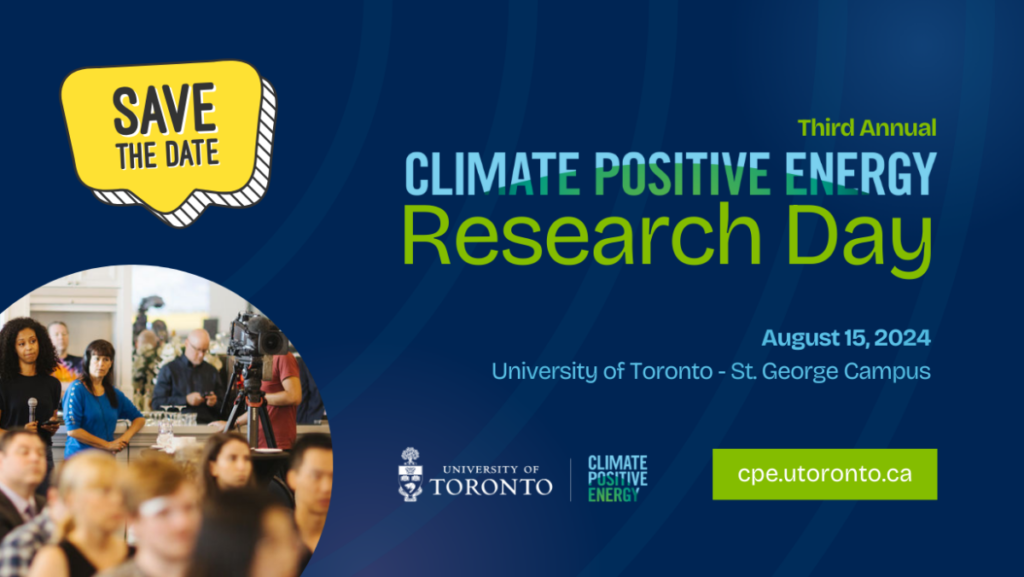
August 15: Third annual Climate Positive Energy Research Day
This highly-anticipated event will be hosted in-person only at the University of Toronto, and will feature an opening keynote session, research presentations, and opportunities to network with professionals from various industries.

July 23-24: 2024 Toronto Robotics Conference
Two days of tech talks with U of T's robotics experts. From logistics and mobility to healthcare, bright futures in robotics start here. 23-24 July 2024 Myhal Centre for Engineering Innovation & Entrepreneurship 55 St. George Street, 5th Floor
